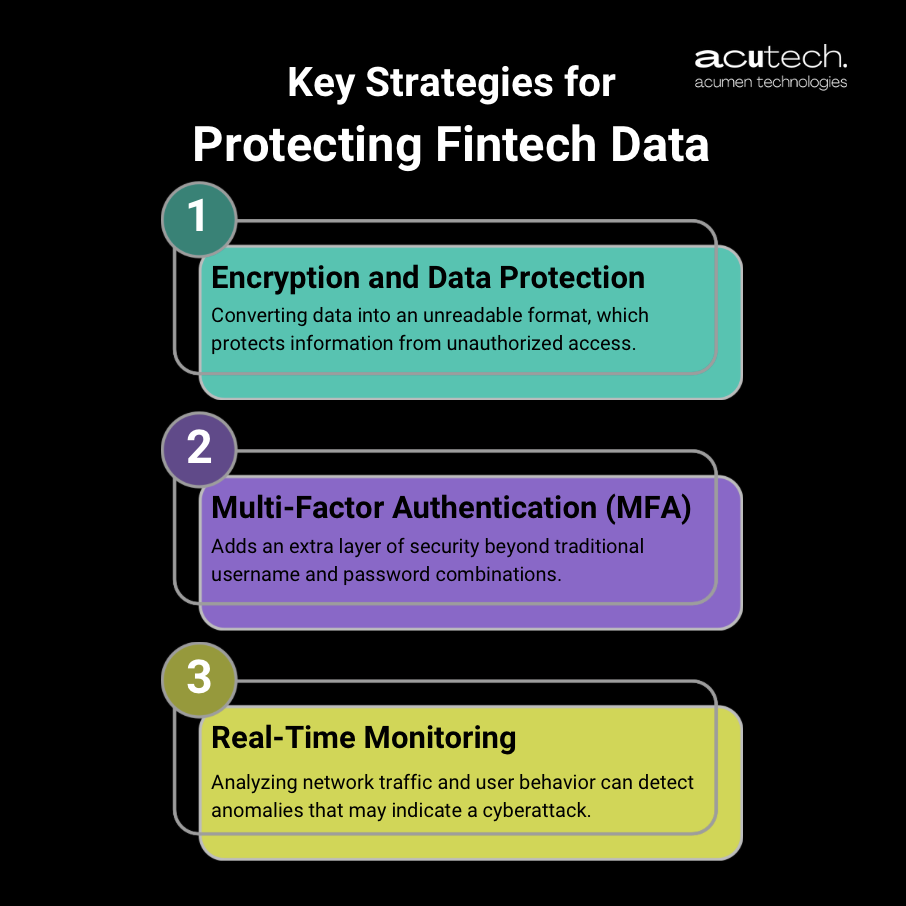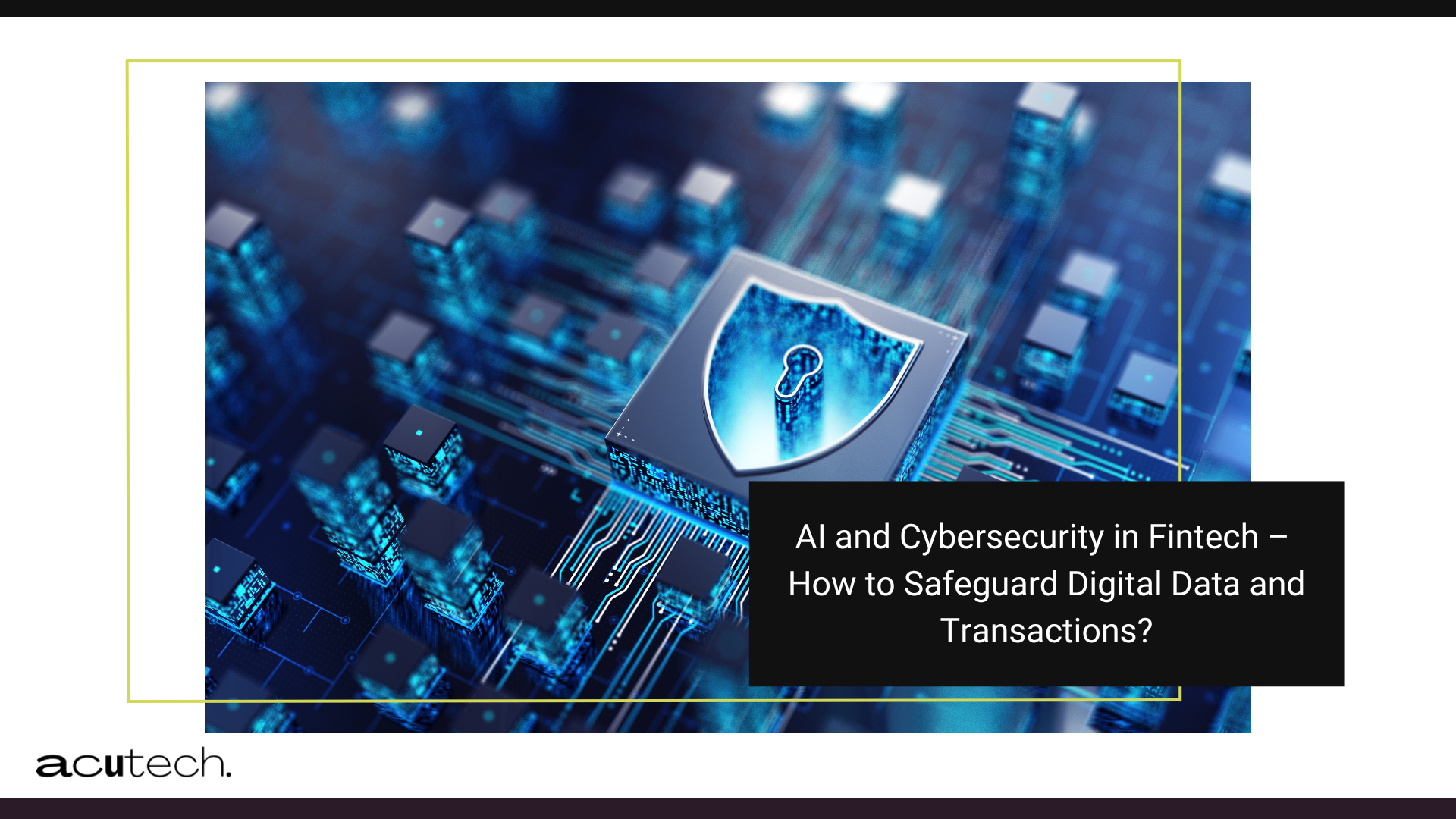Financial technology, or fintech, has completely reimagined how we manage and transfer money.
Whether it’s through digital wallets, online banking, or investment platforms, the convenience and accessibility of fintech have made financial services more efficient than ever. However, this digital transformation also brings with it significant risks. Cybersecurity in fintech has become paramount, as the sensitive nature of financial data makes it a prime target for cybercriminals.
Protecting consumer data in the fintech industry is not just a matter of regulatory compliance; it is crucial for maintaining trust in digital financial systems. As technologies evolve and cyber threats become more sophisticated, robust cybersecurity measures are essential to safeguard data and ensure the integrity of digital financial transactions.
The Importance of Cybersecurity in Fintech
Cybersecurity in fintech is a critical concern, given the massive amount of sensitive data processed daily. Financial institutions and fintech companies are lucrative targets for hackers, who are constantly developing new methods to breach security systems. The risks associated with digital financial transactions include identity theft, unauthorized access to accounts, and financial fraud. Therefore, the protection of consumer data must be a top priority for any fintech company.
Moreover, the trustworthiness of a fintech platform hinges on its ability to protect user data. Customers expect their personal and financial information to be handled with the utmost care, and any breach of that trust can have devastating consequences for a company’s reputation. This is why implementing effective cybersecurity measures is not just a best practice; it’s a business imperative.
Key Strategies for Protecting Fintech Data

Encryption and Data Protection
Encryption is a fundamental cybersecurity measure in fintech, ensuring that sensitive data remains secure during transmission and storage. By converting data into an unreadable format, encryption protects information from unauthorized access. Even if cybercriminals intercept encrypted data, they cannot decipher it without the decryption key.
End-to-end encryption is particularly crucial in fintech, as it protects customer data such as account numbers, passwords, and transaction details from the moment it is generated until it reaches its intended recipient. This approach ensures that data is secure, even if intercepted during transmission.
Multi-Factor Authentication (MFA)
Multi-Factor Authentication (MFA) adds an extra layer of security beyond traditional username and password combinations. By requiring additional verification, such as biometric scans or one-time codes sent to a user’s mobile device, MFA significantly reduces the risk of unauthorized access.
In fintech, where sensitive financial information is at stake, MFA is essential for preventing account takeovers and ensuring that only authorized users can access their accounts.
Real-Time Monitoring and Threat Detection
Real-time monitoring and threat detection systems are vital for identifying and responding to potential security breaches as they occur. By analyzing network traffic, user behavior, and system activities, these systems can detect anomalies that may indicate a cyberattack.
Artificial Intelligence (AI) and Machine Learning (ML) play a crucial role in enhancing real-time threat detection. These technologies can analyze vast amounts of data to identify patterns and predict potential security threats, enabling fintech companies to respond proactively to prevent data breaches.
Enhancing Cybersecurity with AI
Artificial Intelligence (AI) is transforming the cybersecurity landscape in fintech. AI-powered systems can process and analyze large datasets more quickly and accurately than human analysts, making them invaluable for identifying threats and vulnerabilities. By using AI, fintech companies can enhance their cybersecurity measures in several ways:
Predictive Analytics for Threat Detection
AI-driven predictive analytics takes cybersecurity to the next level by identifying potential threats before they materialize. By continuously analyzing vast amounts of historical data, AI systems can recognize patterns that indicate an impending cyberattack.
These patterns might be subtle anomalies in network traffic, unusual login attempts, or deviations from normal user behavior. Once a potential threat is detected, the system can alert security teams, allowing them to take proactive measures to prevent the attack.
This predictive capability is invaluable in a landscape where new threats emerge constantly, enabling companies to stay ahead of cybercriminals and protect sensitive financial data more effectively.
Automating Incident Response
When a security breach occurs, every second counts. AI can significantly reduce response times by automating the incident response process. Upon detecting a threat, AI systems can immediately isolate affected systems, preventing the spread of malware or unauthorized access.
These systems can also automatically trigger alerts, deploy patches, and even rollback changes to contain the breach. By automating these actions, companies can minimize the damage, protect customer data, and maintain business continuity.
Furthermore, AI-driven incident response can handle multiple threats simultaneously, ensuring that no breach goes unnoticed or unresolved. This level of automation not only enhances security but also frees up human resources to focus on more complex aspects of cybersecurity management.
Enhancing User Authentication
AI strengthens user authentication by analyzing behavioral patterns and detecting anomalies that could indicate fraud. Unlike traditional methods, AI continuously monitors user interactions – such as login locations, typing speed, and device usage. When unusual behavior is detected, AI can trigger additional authentication steps, like security questions or biometric verification, to confirm the user’s identity.
AI also enhances transaction security by flagging irregular activities, such as large or unexpected purchases. This proactive approach helps prevent unauthorized access and fraud, even if login credentials are compromised. By dynamically adjusting security measures based on real-time risk, AI ensures robust protection while maintaining a seamless user experience, building trust in digital financial services.
Implementing Comprehensive Security Measures
Data Anonymization and Tokenization
In addition to encryption, fintech companies can further protect sensitive data through data anonymization and tokenization. Anonymization involves the systematic process of removing personally identifiable information (PII) from datasets, effectively severing any direct link between the data and individual users. This approach is especially useful for data analytics, where aggregated data can provide valuable insights without compromising user privacy. By ensuring that sensitive information cannot be traced back to an individual, anonymization significantly reduces the risk of data breaches that could lead to identity theft or financial fraud.
On the other hand, tokenization replaces sensitive data with unique tokens, which hold no exploitable value outside the specific system in which they are used. For instance, in a payment transaction, a user’s credit card number might be replaced with a randomly generated token that stands in for the actual number during processing. Even if a cybercriminal were to intercept this token, it would be useless without the decryption key that maps it back to the original data. Tokenization is particularly effective in payment processing and can be integrated with other security measures like multi-factor authentication to provide an additional layer of protection.
By implementing both anonymization and tokenization, fintech companies can create a more secure environment for handling sensitive data, ensuring that even if a breach occurs, the stolen information is practically unusable.
Regular Security Audits and Compliance
Conducting regular security audits is not merely a best practice – it’s a critical component of a robust cybersecurity strategy. Security audits involve a comprehensive review of a company’s IT infrastructure, software, and policies to identify potential vulnerabilities. This proactive approach allows fintech companies to address weaknesses before they can be exploited by cybercriminals. Regular audits also ensure that security measures keep pace with evolving threats and technological advancements.
Beyond identifying vulnerabilities, security audits also assess compliance with industry regulations and standards. Compliance with frameworks such as the General Data Protection Regulation (GDPR) and the Payment Card Industry Data Security Standard (PCI DSS) is not optional – it is legally mandated and crucial for maintaining the trust of customers and stakeholders. These regulations impose stringent requirements on how financial data is handled, stored, and transmitted, ensuring that companies adhere to the highest standards of data protection.
Additionally, compliance with these regulations often requires detailed documentation and evidence of implemented security measures. Regular audits help fintech companies stay compliant by identifying gaps in their security protocols and providing recommendations for remediation. Non-compliance can result in hefty fines and legal repercussions, not to mention the potential damage to a company’s reputation. Therefore, regular security audits are a vital aspect of maintaining both legal and operational integrity in the fintech space.
Employee Training and Awareness
Despite advanced cybersecurity tools, human error remains a significant threat to data security. Cybercriminals often exploit this vulnerability through phishing, social engineering, and malware attacks, which succeed when employees are unaware of risks or fail to follow security protocols.
To combat this, fintech companies must invest in comprehensive employee training programs that cover the latest cybersecurity threats, safe data practices, and adherence to protocols. For instance, training employees to recognize phishing attempts and the dangers of weak passwords is essential.
Beyond basic training, fostering a security-conscious culture is crucial. This can be achieved through regular workshops, updates on emerging threats, and interactive methods like simulated phishing attacks to reinforce awareness.
Ongoing education and regular reminders ensure that employees stay vigilant. A well-informed workforce serves as a strong defense against cyber threats, helping reduce the chances of human error compromising data security.
The Future of Fintech Cybersecurity
As digital financial transactions continue to grow, so too will the threats to cybersecurity in fintech.
We understand the critical importance of protecting consumer data in this rapidly evolving landscape. By implementing robust cybersecurity measures, leveraging the power of AI, and maintaining a vigilant approach to threat detection, we can safeguard the integrity of financial services and build lasting trust with our customers.
To learn more about how Acumen can help secure your fintech operations, visit our website and explore our comprehensive cybersecurity solutions!


